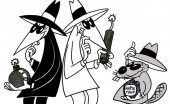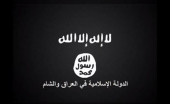Molly Minturn - My family is heartbroken to share that my father died in surgery on Monday, Feb. 10. It…
Wednesday Night #1632
Written by Diana Thebaud Nicholson // June 12, 2013 // Wednesday Nights // Comments Off on Wednesday Night #1632
Such is not the case in what is happening right now in Istanbul, Turkey and for that matter more than just that lovely city where I come from. But in addition other major cities in Turkey were also affected. Not exactly a revolt or revolution in the definition of the dictionaries but…somewhat the population is stirring up against some of the decisions of the strong man in Turkey, the Prime Minister Recep Erdogan — or just Erdogan by his short name.
Especially the partition of the “Sick man of Europe” as it was then called in the early years of the 20th century. And to account for the fact that to be an empire i.e. the great Ottoman Empire and now a nation is not the easiest transition for any community, society, nation and whatever one wants to call the residents of that spot — easily spotted on the Google map. And Istanbul is an exception to the rule compared to any other major city in the world because of its past! Only people who live in Istanbul, who visited the city…and not just seen videos alone would truly understand what is going on. Not really knowing the end result…of all the current upheavals is the very nature of Istanbul. Unpredictable like a lover but yet very present. Then I tried to answer many questions that arose both from my talk and from what people wanted to understand or hear! Conclusion: there are two views, those insiders who are on the real action itself, and those who are on the outside looking inside. We have to keep looking at the videos and arrive at our own conclusions depending on where we come from and the knowledge we have on Turkey and its political and geographic history and current status. End of the conversation.
P R O L O G U E
After last week’s intense focus on Canada and the US, what an assortment of news items and issues confronts us this week, with no particular common thread, although there are some themes. Let us take them one-by-one.
Turkey
Monday night, the BBC informed us that Turkey’s Erdogan to meet protesters
Turkish Prime Minister Recep Tayyip Erdogan is to meet the organisers of ongoing protests against his government on Wednesday, says his deputy.
“They will be briefed on the facts and our prime minister will listen to their thoughts.” Doesn’t sound like an altogether open-minded approach, but better than tear gas and does seem to indicate a slight change of heart (or policy). However, late breaking news on Al Jazeera says that the police have moved in on Taksim Square and protestors are throwing Molotov cocktails.
Twelve hours earlier, Reuters reported – the Prime Minister warned that his patience has its limits and compared the unrest with an army attempt six years ago to curb his power.
It is a complex issue and as noted elsewhere, the opposition is only united temporarily against the government; individual groups have very different agendas and there is neither common cause, nor common leader. We suspect that problems will continue for some time without any resolution. One Friend of Wednesday Night is at Taksim Square and is posting updates on FB. (See Turkey 2012-2013 for more)
Iran
The election takes place on Friday, but the world outside Iran has little information and less understanding of the stakes, or for that matter, the players. CNN refers to the election without buzz. Thank you to the BBC for a straightforward Q&A that points out that of the approved candidates, the contest is between ultra-loyalists and moderate reformers, but there is little informed discussion of nuclear plans or possible reaction to further sanctions which, as usual, appear to hurt only the general population.
Middle East
The problems of Syria, Lebanon, Israel, and the diplomatic manoeuvres of Russia have taken a temporary back seat to the headlines focused on Turkey and Iran.
The US
The dominant issue is the debate over Edward Snowden’s actions: is he a hero who blew the whistle on a dangerous government intrusion into privacy or a villain who criminally endangered our national security?
Revelations – and accompanying outrage – about the NSA’s collection of communication records of millions of US citizens are further complicated by the outing of Snowden as the source and questioning of how he gained access to documents that had nothing to do with his job. The Washington Post offers some excellent background on the real roots of the NSA surveillance scandal
An intriguing new development: Freedom-loving Russia could offer Snowden asylum – what a gold mine (if his assertions are true about his unlimited access) for Mr. Putin.
Canada
Both the National Assembly and Parliament are entering into the silly season as they prepare for summer recess – as we have noted before, a particularly appropriate term. Neither body has distinguished itself by producing thoughtful, citizen-friendly legislation. Maybe the barbecue circuit will improve the policy development process?
The PQ’s all-too-familiar legislative antics have now been overtaken by the controversy over turbans and soccer; in an ugly reprise of the Reasonable Accommodation debate, Pauline Marois is aligning her government with the Quebec Soccer Federation, maintaining that “It is not subject (to the Canadian federation), it is autonomous, not subject to the Canadian Federation and in this regard I support it in its orientations.”
Meantime, Mr. Harper is again escaping the various annoying problems associated with Mike Duffy, Pamela Wallin, Nigel Wright, secret PMO funds, the Senate, etc., etc., by flying off in his newly repainted (branded?) RCAF 01 to Europe where he will most likely NOT be signing the CETA (Comprehensive Economic Trade Agreement) despite having set a deadline for so doing. [Memo to self: always better to set a deadline well beyond when you expect to accomplish the task.]
The G8 may not be quite as much of a picnic as he could have hoped as David Cameron has tax havens on his agenda and Canada appears to have been a wee bit sloppy about fighting that global problem.
In the department of sober second thought (nothing to do with the Senate) two items of Canadian cultural interest:
The first is the rapid retreat by Radio Canada from its inane plan to rebrand itself as “Ici”. On Monday CBC announced that in the face of a backlash, RC would re-rebrand itself.
The second is Minister James Moore’s realization that cuts to the National Archives’ budget have an impact on the pace of preservation efforts. Seems he may want to revisit that budget item.
Europe
As though the seemingly unending debate over the EU’s financial woes and the application of austerity (Being the IMF does not mean never having to say you’re sorry) were not enough, floods have wreaked “havoc unseen in decades across Germany, Austria, Switzerland, Hungary, Slovakia, Poland and the Czech Republic” – some of the photographs of flooding of otherwise impeccably groomed towns and villages are simply extraordinary and in a way more devastating than the usual ones of cresting rivers or inundated fields. We hope to have an account from Tony Deutsch who has witnessed some of the devastation over the past ten days. It seems too early to begin to ascertain the economic impact (including health costs) of the floods, but we look forward to comments.
Media
Finally, in the current atmosphere of amateur and professional reporters rushing to tweet the latest unconfirmed news, we warmly recommend this thoughtful piece:
When reporters keep silent instead of scoops
During the Bosnia conflict, reporters in Sarajevo kept quiet about at least two great stories. We did so with an unwritten rule of realizing that sometimes silence is more important than scoops. … Those past moments come to mind with the stories now of how the Islamic cultural treasures of Timbuktu called for the same caution and awareness for reporters to go along with their accurate and fearless work from such conflict areas.



